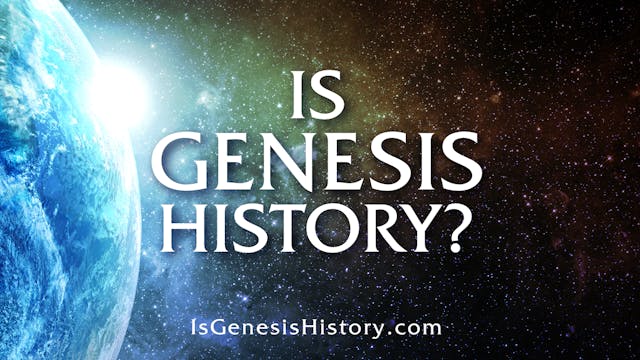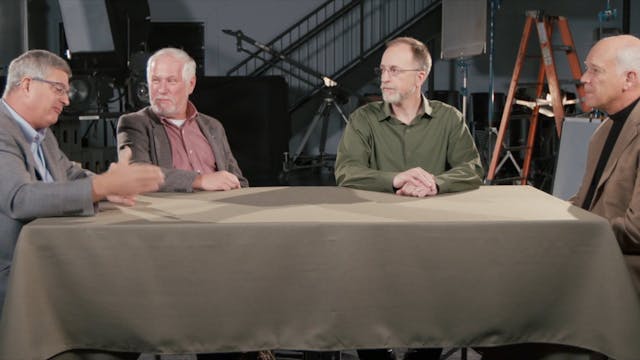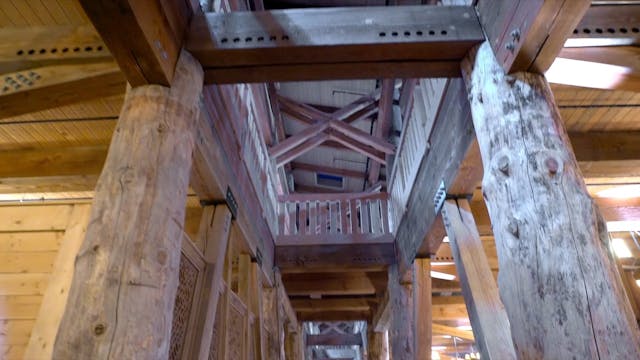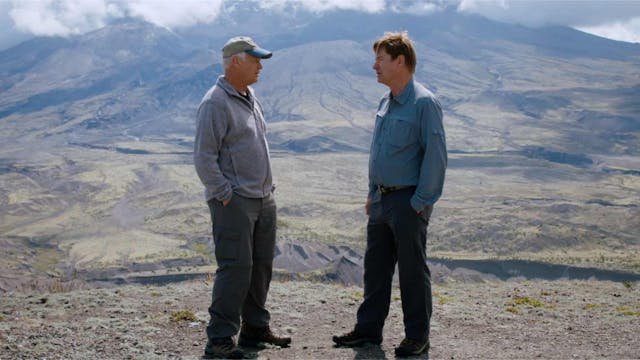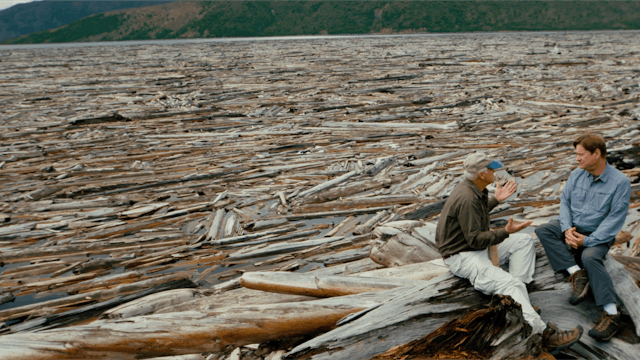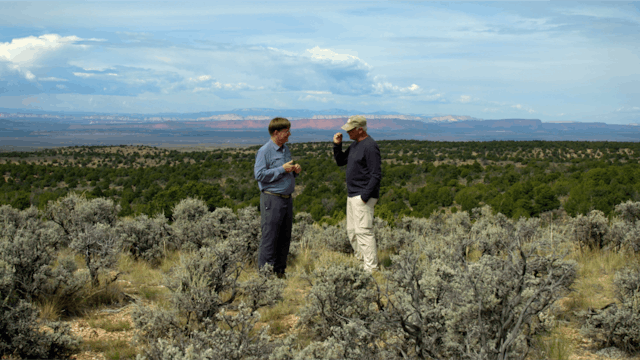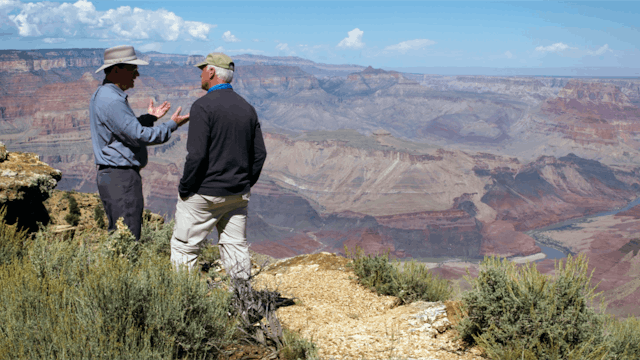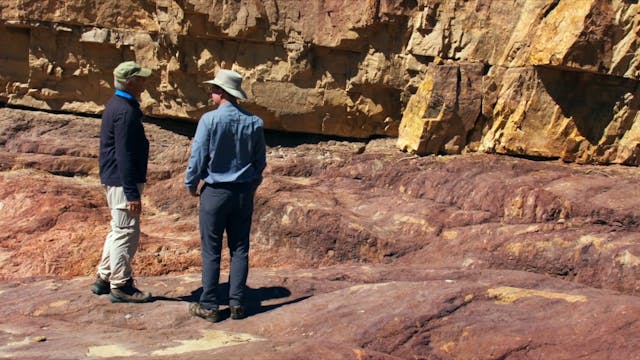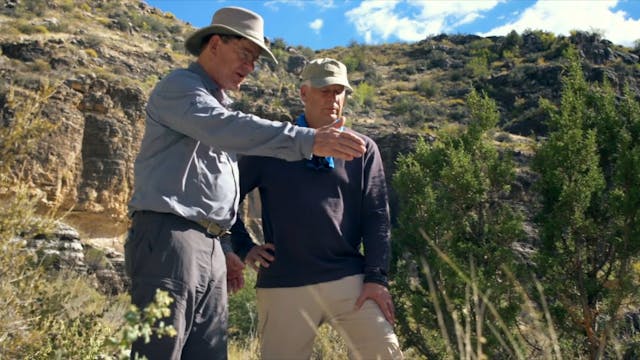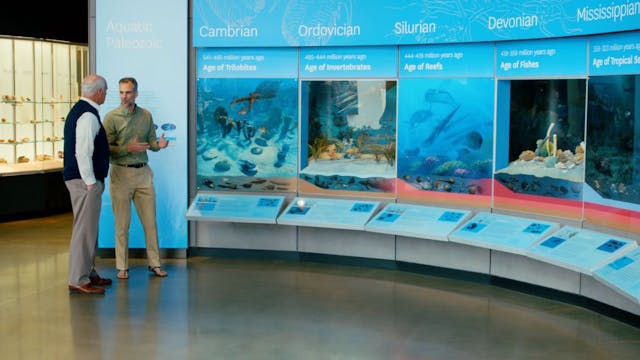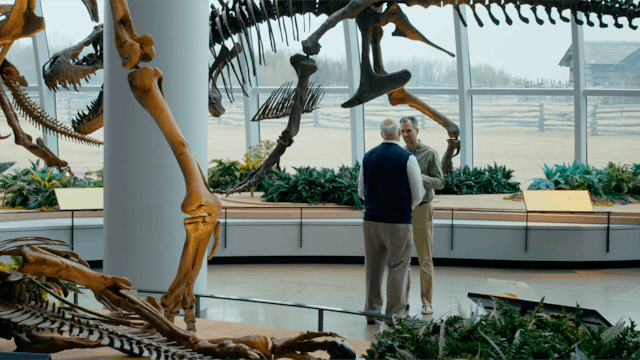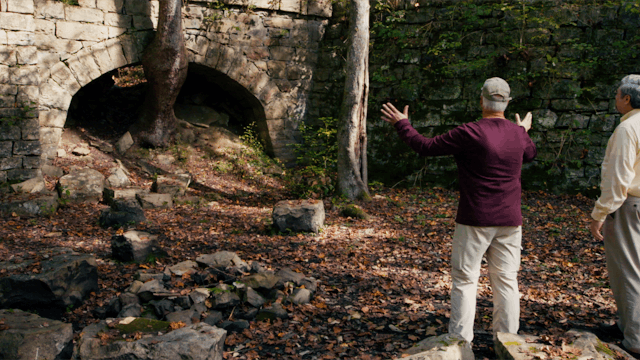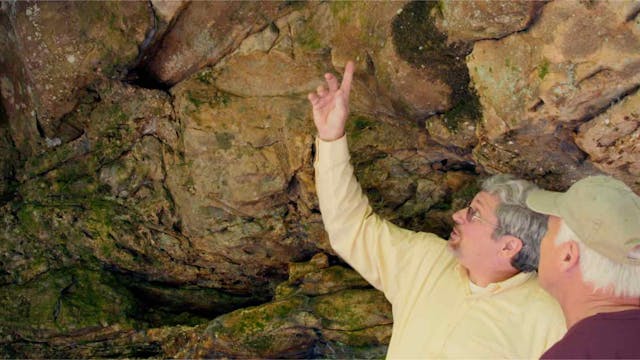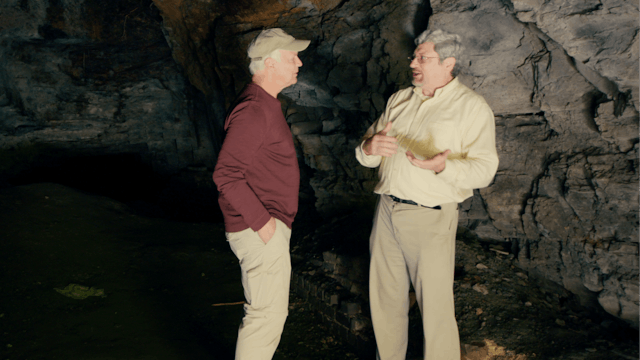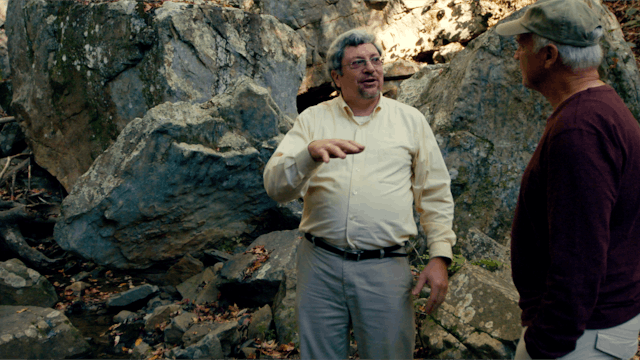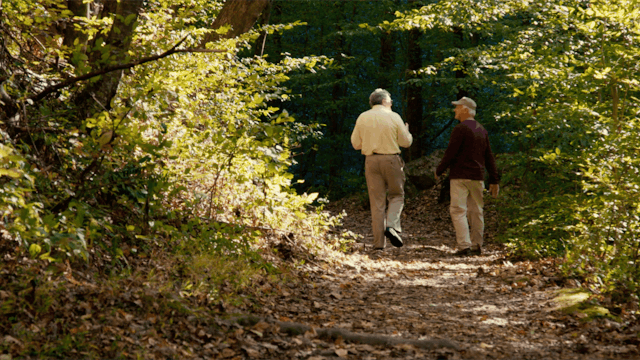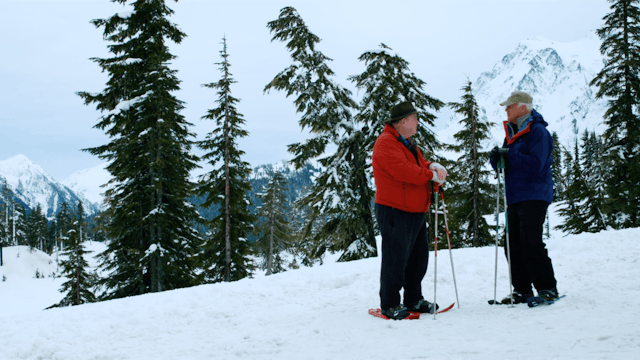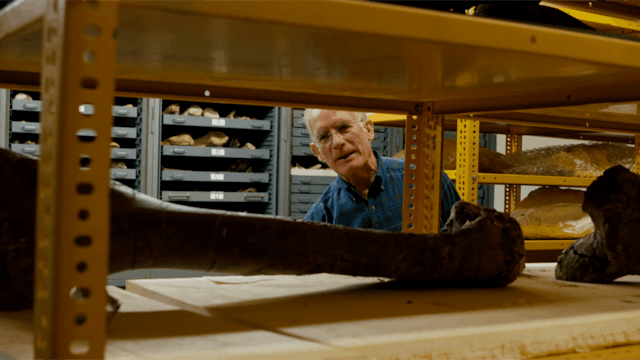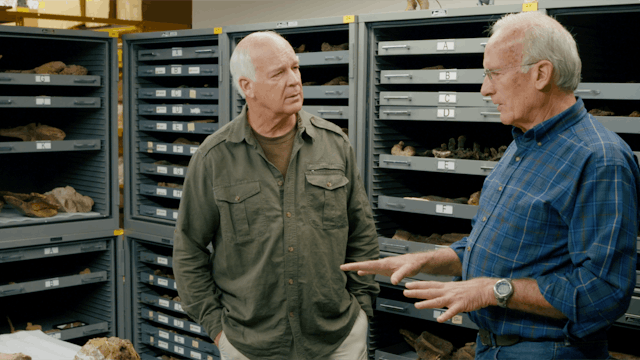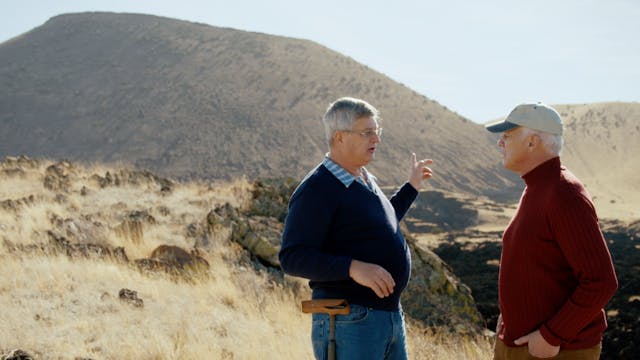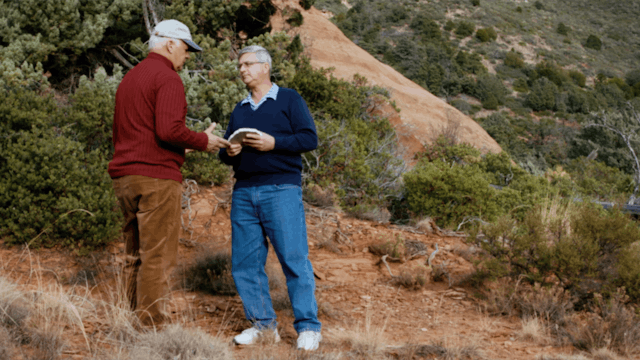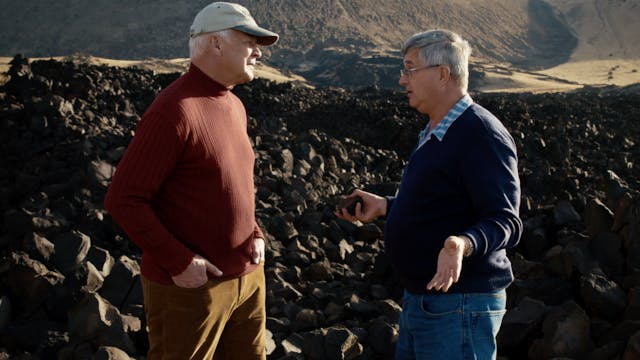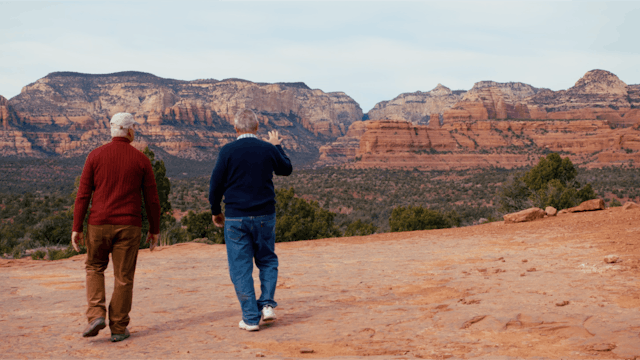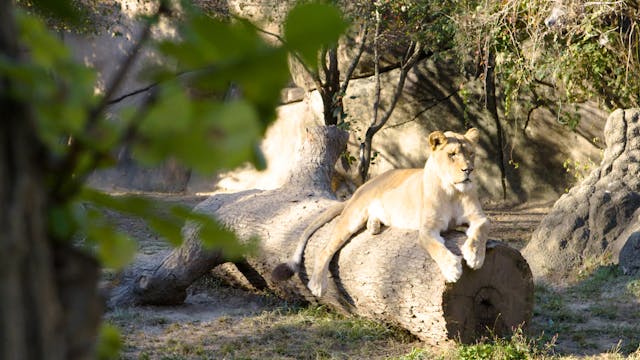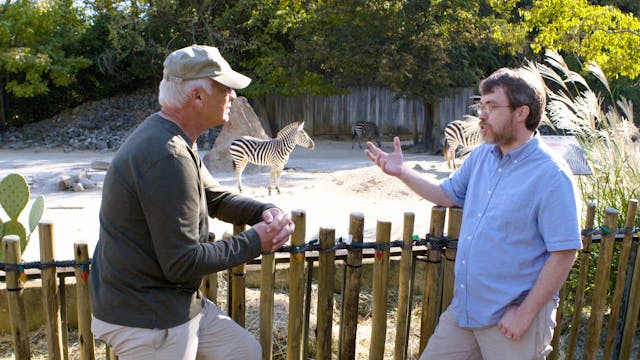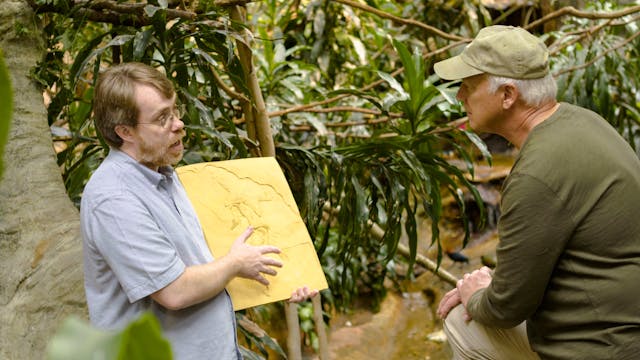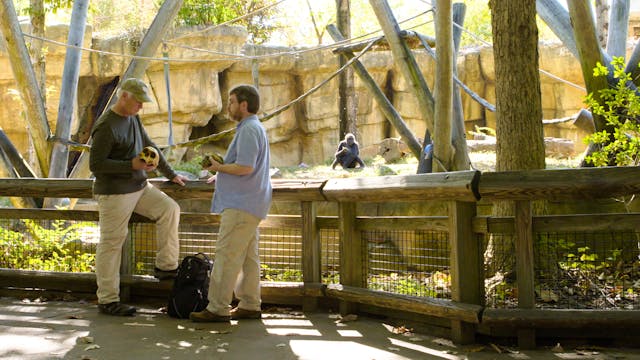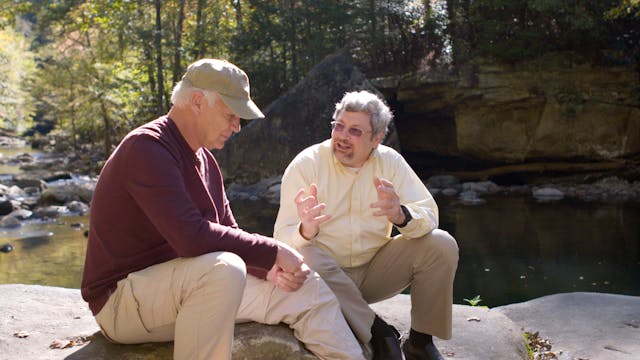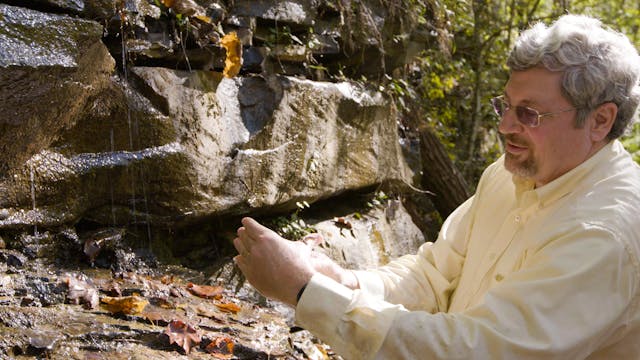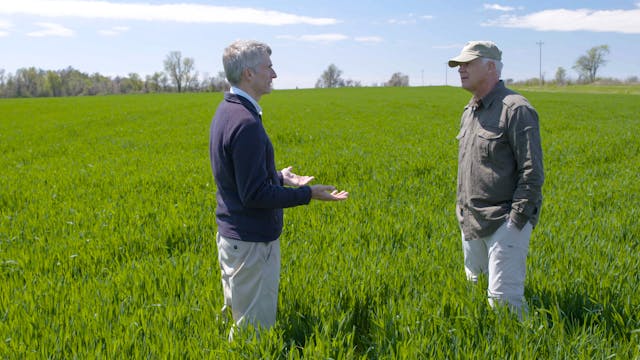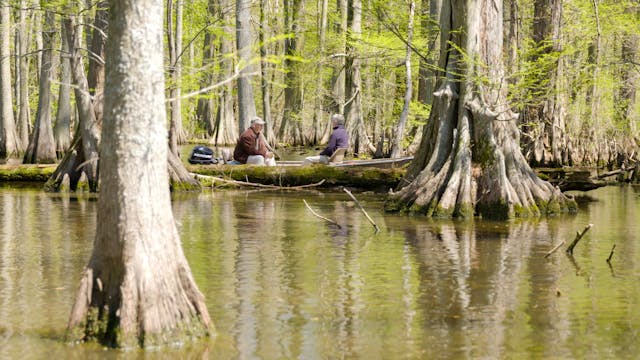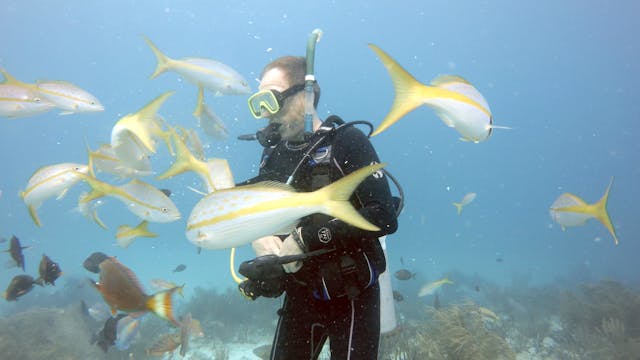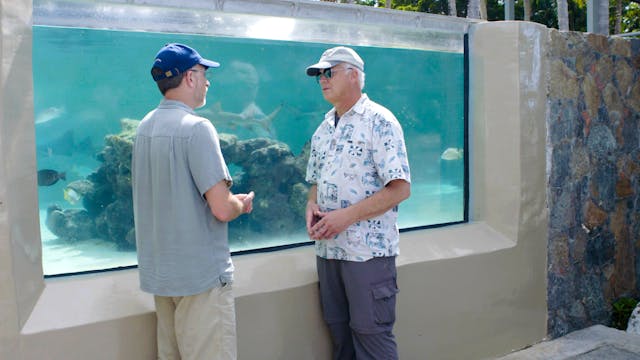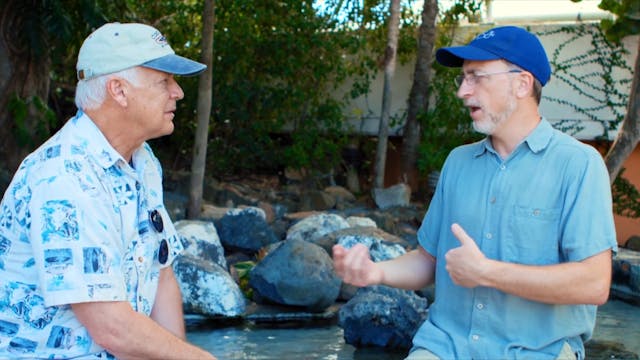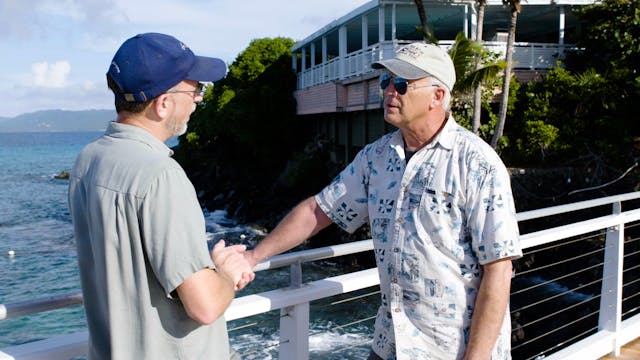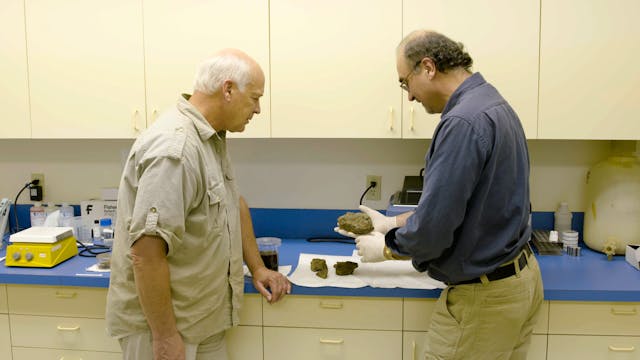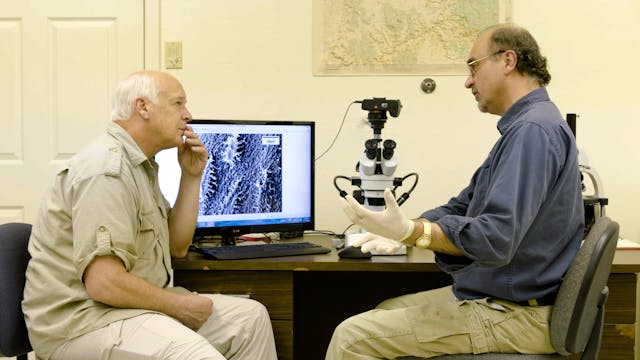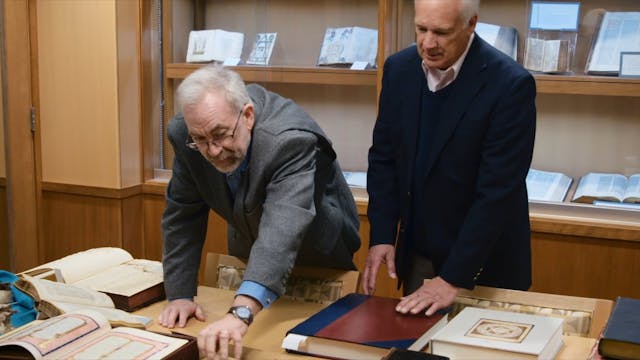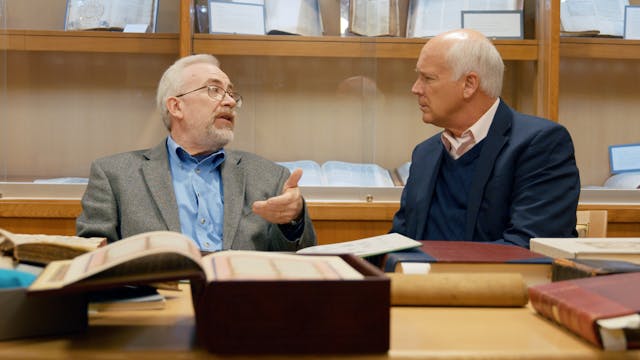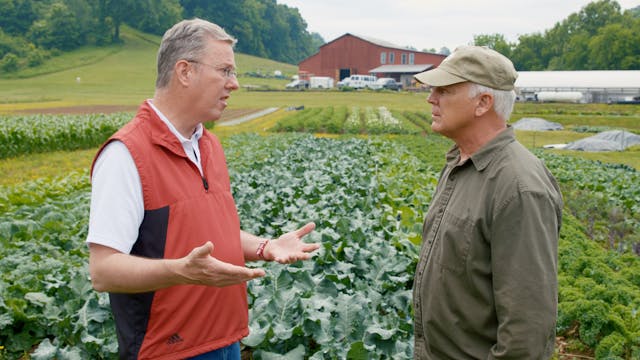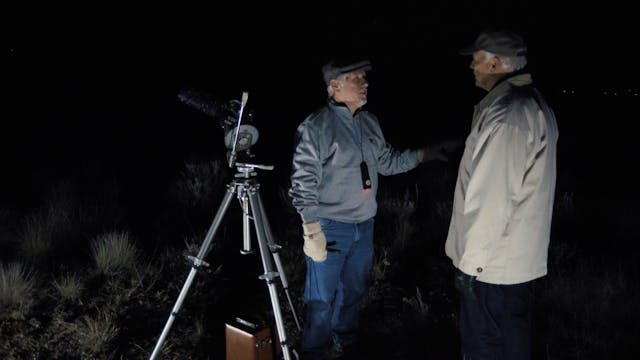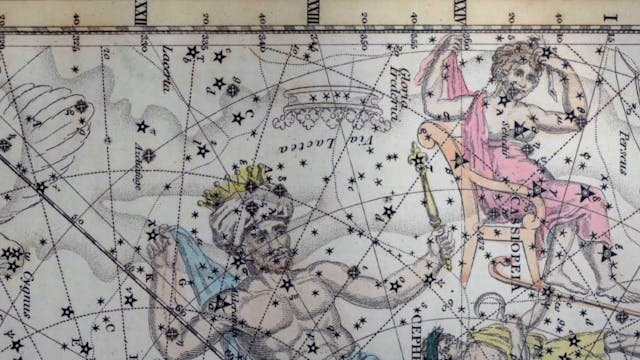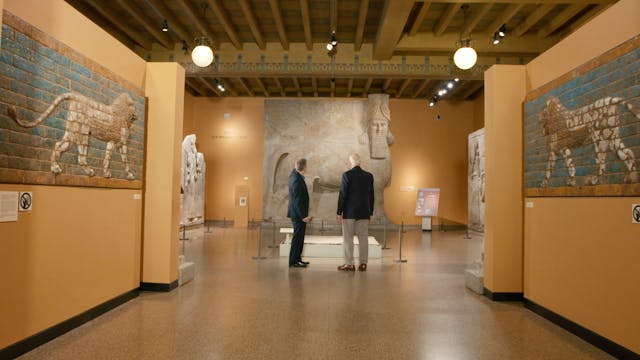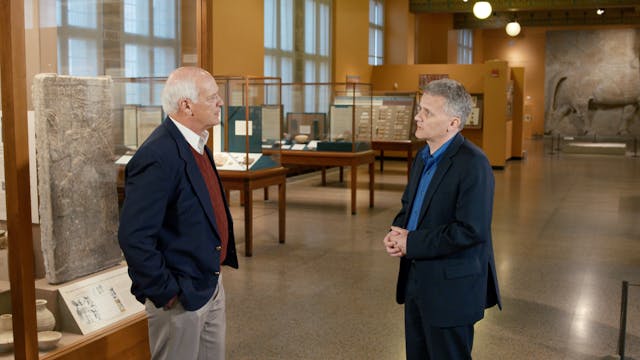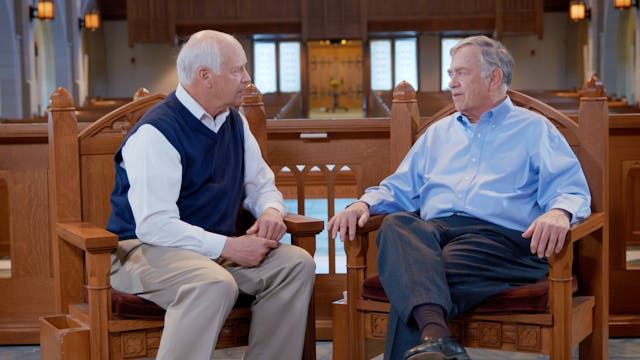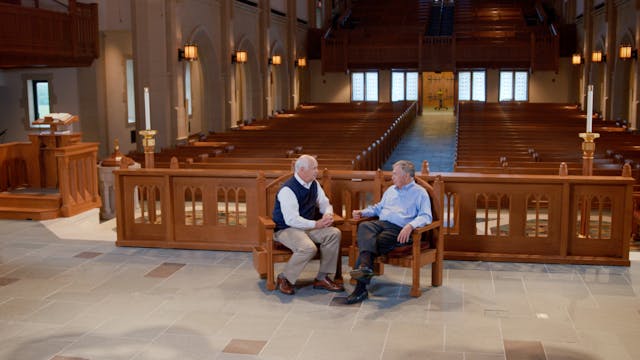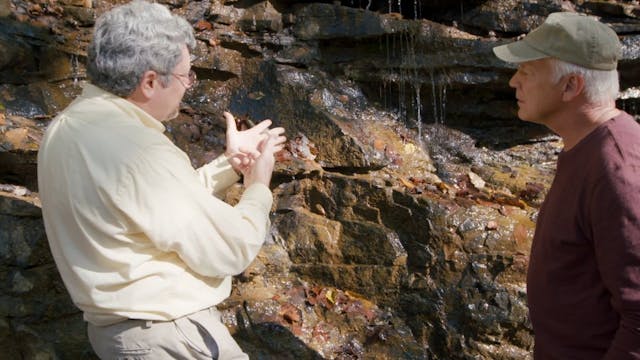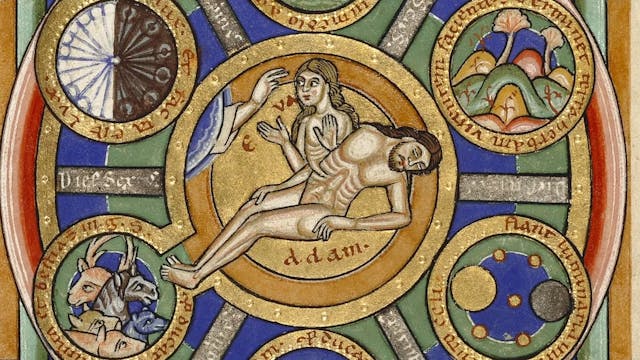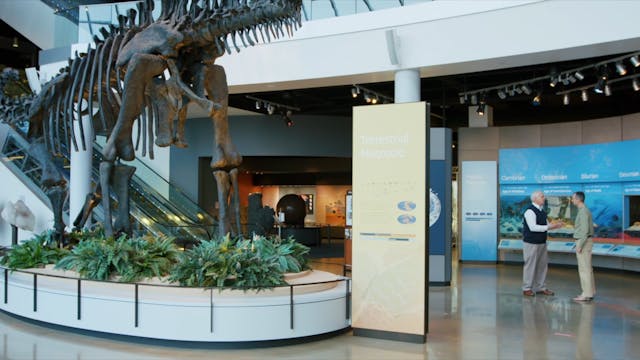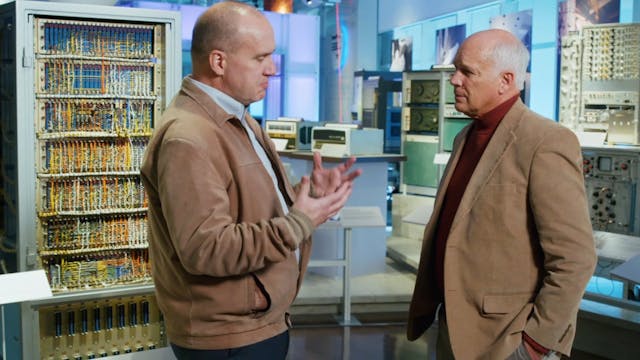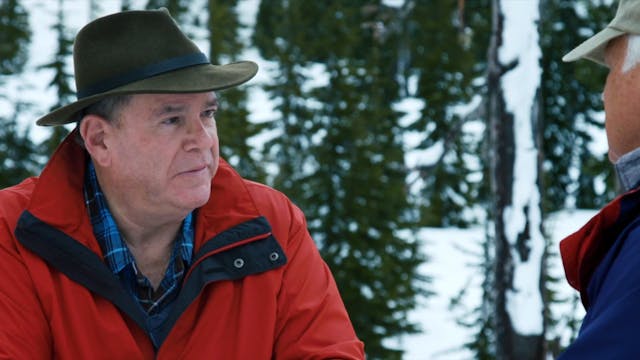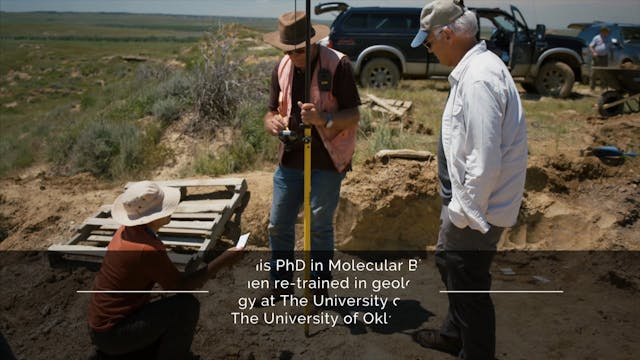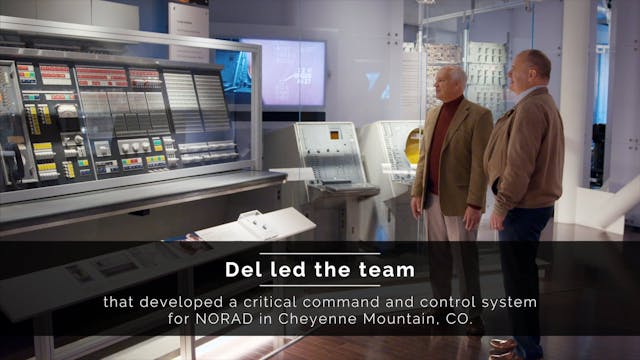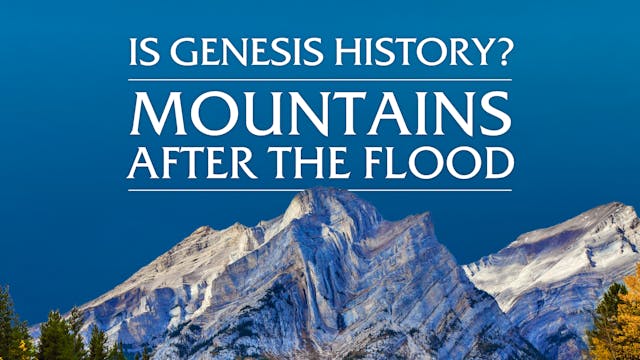Creation Bundle
All products below include PDF booklets:
Is Genesis History? Feature Film & Bonus Features
Is Genesis History? Mountains After the Flood Feature Film
Beyond Is Genesis History? Vol. 1: Rocks & Fossils (20 videos)
Beyond Is Genesis History? Vol. 2: Life & Design (16 videos)
Beyond Is Genesis History? Vol. 3: Bible & Stars (12 videos)
Is Genesis History? Bible Study Set (6 videos + PDF Book)
-
Is Genesis History? Feature Film
Over a dozen scientists and scholars explain how the world intersects with Genesis. From rock layers to fossils, to lions and stars, this fascinating film will change the way you see the world.
The goal of the film is to provide a positive case for Creation in six normal days, a real Adam and ...
-
Bonus: Q&A with Del Tackett and Scientists
Featuring: Del Tackett, DM; Robert Carter, PhD; Danny Faulkner, PhD; Andrew Snelling, PhD. This brief discussion explores what to do after watching film, the nature of science and authority, the problems with theistic evolution, and the future of creation science.
-
Bonus: Ark Encounter
Featuring Del Tackett with college students; Isabelle Hartokolis, Abigail Sickbert, and Aleks Nosewicz discussing creation at Ark Encounters.
-
1. Mount St. Helens: Catastrophic Geology
Steve Austin provides an overview of the events of the 1980 volcanic eruption and subsequent mudflows. He explains how geologic processes associated with the volcano and its aftermath can teach us about even larger catastrophic processes that occurred during the global Flood.
-
2. Spirit Lake & the Floating Log Mat
Steve Austin explains what happened at Spirit Lake during and after the eruption. Millions of trees were knocked into the lake to create a floating log mat, which in turn produced a thick layer of peat and the appearance of a stratified forest.
-
3. The Grand Staircase
Steve Austin explores part of the Grand Staircase, the thick stack of rock layers which are visible as sets of parallel cliffs above the Grand Canyon. He explains that the history of the world is best viewed through a Flood geology model as a five-step process: Sedimentation, Tectonics, Erosion, ...
-
4. Grand Canyon: Desert View & the Colorado River
Steve Austin explains the history of the rock strata from creation week to the present day, then discusses the conventional paradigm introduced by Charles Lyell and Charles Darwin. He takes Dr. Tackett to the Colorado River and talks about the catastrophic processes necessary to carve out such a ...
-
5. The Great Unconformity and Megasequences
Steve Austin explains how the rock layers making up continent-wide megasequences are best explained by fast-moving slurry deposits caused during the Flood. He discusses how rapid sedimentation leads to large-scale erosion and deposition like we see in many places throughout the world such as the ...
-
6. Nautiloid Fossils in the Grand Canyon
Steve Austin visits a spectacular fossil bed within the Redwall Limestone in the Grand Canyon. The bed contains abundant nautiloids that appear to have been killed simultaneously. He and Del Tackett finish their trip to Grand Canyon discussing how the huge layers of rocks are a memorial to God’s...
-
7. An Overview of the Rocks & Fossils
Marcus Ross gives a tour of the fossil record from the lowest Paleozoic layers up through the highest Cenozoic layers. He explains how the fossil record generally moves from deep marine creatures to terrestrial creatures, revealing how different communities were captured during the global Flood.
-
8. The Fossil Record & Design
Marcus Ross discusses how the fossil record fits with the history explained in Genesis. Abundant marine fossils on the continents and the appearance of animal trackways before body fossils are best explained by a global Flood. He then examines how design can be seen in fossil organisms, from comp...
-
9. The History of Life
Kurt Wise discusses why people can study nature without acknowledging the biblical truths of a recent creation and a global Flood. He then describes the events of the five “epochs” of earth history: the Creation, the Edenian Epoch, the Antediluvian Epoch, the Arphaxadian Epoch, and the Modern Epoch.
-
10. Evidence of the Catastrophic Past
Kurt Wise explores evidence for various catastrophic processes occurring during and after the global Flood. These include major earth movements, ancient earthquakes, and mass kill fossil deposits. Kurt shows that these fossils are evidence of a unique pre-Flood environment which was completely d...
-
11 The Rapid Formation of Coal
Kurt Wise goes into the air shaft of an old coal mine to explore the origin of coal. He explains how the conventional model of coal formation in swamps is insufficient for explaining the coal beds we actually see. He talks about research done by Steve Austin in terms of floating log mats.
-
12 The Order of the Fossils
Kurt Wise looks at plant fossils and explains how they are important to understanding the fossil record. He shows how the pre-Flood world would have had different unique biomes—such as a Floating Forest—which explain the unique order of fossils laid down during the global Flood.
-
13. After the Flood & the Nature of Science
A waterfall provides an informative location for Kurt Wise to discuss what the world was like after the Flood, from giant volcanoes, to animal dispersion, to the Ice Age. In closing, Kurt Wise and Del Tackett address why some believers doubt or refuse to accept the Genesis account of origins.
-
14. The Ice Age & Climate Change
Larry Vardiman explains how the global Flood set up the unique conditions necessary for an ice age to occur. He also discusses climate change and the reliability of ice core dating.
-
15. Exploring Fossils & Paleocurrents
Art Chadwick shows Del Tackett his collection of over 20,000 fossils gathered from Hanson Ranch. These include fossils from Triceratops, Edmontosaurus, and Nanotyrannus. Art explains how fossils are formed and how they change from the top to the bottom of the Mesozoic rock layers. He also explain...
-
16. Catastrophe & Complexity in the Fossil Record
Art Chadwick explains how various aspects of the fossil record—including dinosaur footprints, death postures, and dinosaur eggs— fit with the idea of a global Flood. He then talks about evolutionary trees and the complexity that is evident even in the fossils found in the lowest rock layers.
-
17. Radioisotope Dating 1: Overview & Radiohalos
Andrew Snelling explains the principles of radioisotope dating as well as the assumptions necessary for these methods. He explains why he thinks radioisotope decay was accelerated during the Flood and includes evidence from radiohalos and helium diffusion rates.
-
18. RadioIsotope Dating 2: Implications & Carbon-14
Andrew Snelling continues discussing radioisotope dating, including whether excess heat would be a problem for accelerated decay rates. He then examines radiocarbon dating and how Carbon-14 has been found in coal, dinosaur bones, and diamonds.
-
19. Catastrophic Plate Tectonics
Andrew Snelling explores how the scale of geologic processes, such as volcanic eruptions, was much larger in the past. He then shows how Catastrophic Plate Tectonics helps explain the geologic processes that caused the global Flood.
-
20. Evidence for a Young Earth
Dr. Andrew Snelling discusses geological evidences for a young earth, including the large extent of rock layers, a lack of significant erosion between layers, and an absence of major bioturbation within layers. The Coconino Sandstone provides abundant evidence of underwater origin. He and Del Tac...
-
1. Introduction to Created Kinds
Todd Wood introduces the concept of ‘created kinds’ then talks about how that explains the origin of species we see in the world today.
-
2. The Power of Natural Selection
Todd Wood discusses natural selection in light of animal designs, then looks at the evolutionary ‘tree of life’ versus the creationist ‘orchard of life.’
-
3. The Origin of Flight & Mosaic Animals
Todd Wood compares the creationist view of the origin of flight with the evolutionary view, then explores mosaic animals.
-
4. Humans & Apes
Todd Wood talks about the hominid fossil record and discusses different types of humans compared to non-human primates.
-
5. Amazing Relationships Throughout Creation
Kurt Wise explains how God created the world as a series of complex, interconnected, and mutual relationships that can be seen in plants, animals, and bacteria.
-
6. How the Natural Realm Reflects God
Kurt Wise shows how God has created the world to reveal His unique attributes, then talks about why science is such an important responsibility for Christians to pursue.
-
7. The Design of Earth & Stars
Stuart Burgess explores how God designed different parts of the planet during the first four days of creation, including the irreducible complexity in many systems and materials.
-
8. The Design of Animals & People
Stuart Burgess examines the unique features of birds, fish, and animals before looking at the amazing complexity of man.
-
9. Diversity & Design in the Ocean
Rob Carter explains how the oceans are incredibly complex parts of God’s creation, from ecosystems to genetics to internal structure.
-
10. Evolution, Creation, & the Order of Species
Rob Carter compares creation and evolution, then looks at how genetics and design lead to unique types of species.
-
11. The Extraordinary Design of DNA
Rob Carter explores the four-dimensional genome, showing how it works on many different levels and how it is far more complex than any computer we have created.
-
12. Using DNA as a Clock
Rob Carter provides an overview of how specific parts of the genome can be used for dating purposes, as well as how they point to our descent recently from just a few people.
-
13. Soft Tissue in Dinosaur Bones
Kevin Anderson explains the unique discovery of soft tissue from a triceratops horn, discusses questions about soft tissue, and considers what it means for creation and evolution.
-
14. Evolution & Mutations
Kevin Anderson talks about the importance of time to evolution, what mutations actually do, and why recent creation is the best explanation for what we see in the world.
-
15. Exploring Paradigms & Design
Paul Nelson compares the conventional paradigm with the historical Genesis paradigm, then discusses the importance of intelligent design, genetics, and language.
-
16. Intelligent Design in Nature
Paul Nelson looks at the way a supercomputer works compared to a bacterial cell, then explores the countless things any paradigm of origins must necessarily explain.
-
1. Why Genesis is Truly History
Hebraist Steve Boyd looks at some ancient manuscripts, then explores the evidence that Genesis is narrative history, including his own statistical analysis.
-
2. Overview of the First Chapters of Genesis
Starting with Genesis 1:1, Steve Boyd then steps through the major sections of the first part of Genesis, talking about its content in light of the Hebrew text.
-
3. The Importance of Genesis to Our Culture
Pastor George Grant explains how the historical events of Genesis are definitive for explaining our world and culture today.
-
4. How Genesis Impacts Time, History, & Science
George Grant shows how our view of time reveals the influence of Genesis not only on time, but on government and morality.
-
5. The Extraordinary Design of the Universe
Astronomer Danny Faulkner points out many of the incredible design elements in the moon, planets, and sun, as well as the nature of physics itself.
-
6, The Light Travel-time Problem & the Big Bang
Danny Faulkner describes his solution to the light travel-time problem, then discusses many of the issues with Big Bang cosmology.
-
7. Identifying the Tower of Babel
Archeologist Doug Petrovich explains why he thinks he has identified the site of the Tower of Babel.
-
8. Carbon Dating & the Septuagint
Doug Petrovich discusses the problems with Carbon-14 dating, as well as his view on the Septuagint, the Greek Old Testament.
-
9. The History of the Church on Creation & Evolution
Theologian Douglas Kelly provides an overview of what the church has historically taught on creation and evolution from the first centuries to the present.
-
10. The Importance of the Doctrine of Creation
Douglas Kelly examines the foundational importance of the doctrine of creation on all other Christian doctrines, including redemption.
-
11. Answering Common Questions about the Text of Genesis
Starting with the first chapter of Genesis, Douglas Kelly provides answers to some of the common questions about the Genesis text.
-
12. Understanding the Genre & Theology of Genesis
Douglas Kelly talks about the reasons Genesis is a historical text and why other views of Genesis are inaccurate.
-
1. Genesis as History - George Grant
-
2. The First Seven Days - Stuart Burgess
-
3. Man, Life, & Science - Kurt Wise
-
4. Adam, Eve, & the First Sin - Douglas Kelly
-
5. The Global Flood - Marcus Ross
-
6. The Importance of History - Paul Nelson
-
Bonus: Engineering the Universe
Featuring: Stuart Burgess, PhD (Mechanical Engineer) at Wheat field & Reelfoot Lake, TN. Dr. Burgess explains how creation in six normal days is the best way to understand how God engineered the entire universe. From the implementation of physical laws, to the structure of water and light, to the...
-
Bonus: The Ice Age & Climate Change
Featuring: Larry Vardiman, PhD (Atmospheric Scientist) at Mount Baker, Washington. Dr. Vardiman looks at how the Flood was the cause of the Ice Age during the Post-Flood epoch, the relationship between current ideas of climate change and the Flood, and the interpretation of ice cores in Greenland...
-
Bonus: Creation & the Church
Featuring: Douglas Kelly, PhD (Theologian) at Covenant Presbyterian Church, Tennessee. Dr. Kelly examines the history of the different views of creation and evolution throughout the history of the Christian church. Starting with the Church Fathers and going up to the present, he looks at how the ...
-
About the Scientists
-
About Del Tackett
-
BIGH 3 Guide to Bible & Stars.zip
1.16 MB
-
BIGH 2 Guide to Life & Design.zip
430 KB
-
BIGH 1 Guide to Rocks & Fossils.zip
3.14 MB
-
Is Genesis History? Mountains After the Flood
In this fascinating sequel to Is Genesis History? follow a team of creation scientists as they discover new evidence for the global Flood. You'll stare up at folded rock layers, peer into microscopes, climb high mountains, and fly over the Grand Canyon. By the time the journey is over, you’ll und...

